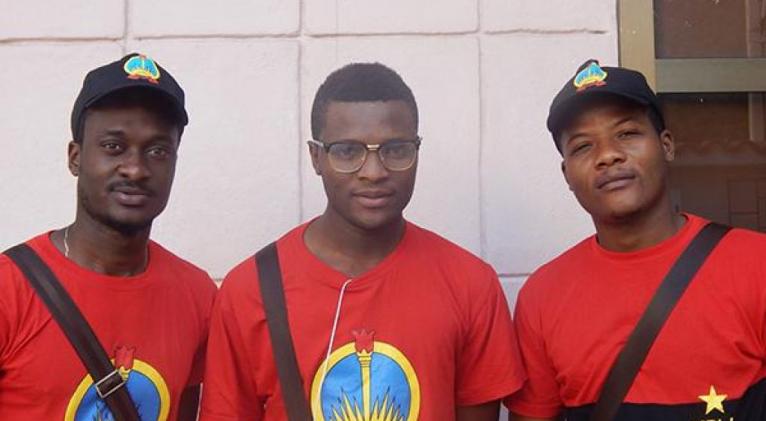Angolan students in Cuba: We will continue building shared histories
especiales

Solidarity cooperation in the sphere of education has been an important element of bilateral relations between Cuba and Angola, according to young Angolans studying in Cuba universities, speaking with Granma International. Aguinaldo Jaime Bento de Olivera’s father encouraged him to study in Cuba, and he decided to enroll in Computer Engineering, currently in his fourth year at the José Antonio Echeverría Higher Polytechnic Institute (CUJAE). “We talk a lot about Cuba in my family, my father was taught by Cuban professors in high school and university in my country,” he notes.
Aguinaldo is the only foreign student in his class. He commented on the damages caused to the country by the genocidal economic, commercial and financial blockade imposed by the U.S., which results in shortages of modern technology in classrooms. However, he notes that the professors’ expert and up-do-date knowledge is more important than any material difficulty.
His best moment occurred when his mother visited him and toured the university. She spoke with directors, walked around the common areas, visited the facilities and talked with many of his classmates. “She liked the student-professor relationship, exchanges between students with a great sense of solidarity. She praised the feeling of harmony and integration among the young people.”
22 year old Gelcitor Fortunato Pitro, is a fourth year Economics student at the University of Havana. He chose to study the subject given his love of solving mathematical equations.
His favorite subject is Macroeconomics, which explains the relationships between governments and businesses. “We study economic crises, austerity plans, the new measures to be applied to the national economy, in depth. We learn about the causes which lead to underdevelopment and how economics works at a global level.”
His main obstacle has been the language. “We received a year of Spanish classes but the universities high academic standards force you to study harder, in order to understand the content,” he noted. Despite the fact that Gelcitor knows that academic difficulties are overcome by dedicating more time to his books, he still participates in various cultural and sporting activities. He is a huge football fan and belongs to his faculty team, which competes in the Caribbean Games (sporting tournament organized by the University of Havana). His classmate Jackson Evaristo Maquina, also plays for the team.
”We try to beat the Law Faculty; there’s a longstanding rivalry between Economy and Law. These games give us the opportunity to get to know students from other faculties and other nations. I never thought I would meet a Mexican, and Pablo is one of my best friends,” notes Jackson.
He recalls an anecdote: “I come from the city of Benguela, a place of epic events which took place in war of the 1980s. My uncle’s nickname is Muchacho (young man), the Cubans used to call to him with expressions such as ‘hey muchacho;’ ‘come here muchacho;’ ‘look, muchacho.’ Since then he lost his original name. My family always wanted me to study in Cuba.”
Jackson is a student leader of the Popular Movement for the Liberation of Angola (MPLA) organization, a role which he carries out in Havana with strong links to Cuban organizations such as the Federation of University Students (FEU) and Young Communist League (UJC).
Milton Joaquín Golombole is currently in his first year at the Victoria de Girón medicine faculty, inspired by the humanist reputation of the Cuban doctors in his country, which have been collaborating there since 1975, first as a part of the military operation and later through a bilateral cooperation agreement.
”We must study a lot,” he notes, “the teachers warn us, saying that grades aren’t given away but earned. I make sacrifices in order to study more, I don’t sleep much, I limit my leisure time, I try not to get distracted and dedicate the majority of my time to studying,” he notes.
Milton confesses that his people feel a great sense of affection for Cubans, given their heroic actions during the war against apartheid in Africa. But here, he admires the achievements of the Revolution, noting the country’s peaceful environment, Cubans’ willingness to discuss any topic, the architecture, beaches, museums, and cities in the interior of the island.
He notes, “We will always support Cuba in any of the struggles it undertakes. We have shared histories which we will continue to build. You (Cubans) can count on us Angolans; if necessary we would give our lives for our Cuban brothers.













Add new comment